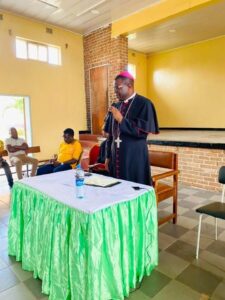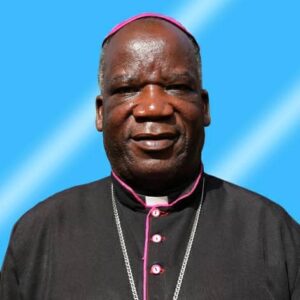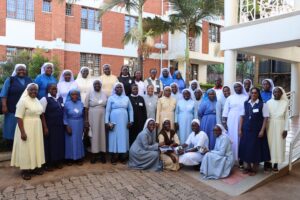MALAWI: Living our Faith Pastoral Letter Inspired Malawi-Academicians

Luke Bisani
Academicians in Malawi have applauded the Catholic Bishops’ historical pastoral letter of 1992, arguing it inspired the country’s future.
Speaking on Thursday this week on the opening day of two-day conference that aimed at commemorating the 30th Anniversary of the pastoral letter Living our Faith, one of the Presenters Dr. Henry Chingaipe applauded the inspirations drawn from the Pastoral letter.
“When we look at the pastoral letter, what we see is, the pastoral letter embodied inspirations; economic, political, and others were to do with justice systems but also social development,” said Chingaipe.
Chingaipe added that some of the inspirations have been attained while others are yet to be attained 30 years down the line since the bishops wrote the letter.
“In governance and political arena, we see a lot more of positives, now we have a more open political system, we have more political parties who can identify themselves as affiliates, people can carry out political discourses without restrictions something that wouldn’t have happened during one party era” he added.
He further added that Malawi has attained freedom of speech and witnessed the birth of vibrate media in the country with more radio stations and televisions being opened.
Concurring with Chingaipe, University Council Chairman for the Catholic University of Malawi Most Rev. Thomas Luke Msusa who is also the archbishop of the Archdiocese of Blantyre said all Malawians must celebrate the pastoral letter looking at the status quo of that during the one-party regime.
“The Catholic Bishops really did a wonderful job for Malawi; it is something that we really need to celebrate not only today but over the years. The Pastoral letter brought new social-political evolution” said Archbishop Msusa.

In March 1961, the Catholic bishops of Malawi, Nyasaland then issued a joint pastoral letter entitled “Building a Happy Nation” to challenge the laity to strive for independence from British colonial rule.
Later in 1992, the bishops issued a Pastoral Letter that challenged the leadership of the first president after independence Dr. H. Banda that was a dictatorship and full of atrocities.
30 years down the line, the Catholic University of Malawi through its Faculty of Theology brought together scholars to look at the impact of the pastoral through research papers.
Over ten academicians in Malawi have presented their papers during the two-day conference that aimed at commemorating the 30th Anniversary.
Among the papers that have been presented include; “The Emperor has no Clothes”: Power Distance and the Limits of Free Speech in Malawi by Fr. Dr. Wilfred Sumani, The Historical and Hermeneutical Context of Living Our Faith by Fr. Dr. George Buleya, Malawian Land Policies and Failed Redistributive Land Reforms in Neoliberal Context: Social Exclusion and Deepening Land Poverty in Southern Malawi by Dr. Justine Mangulama just to list some.


